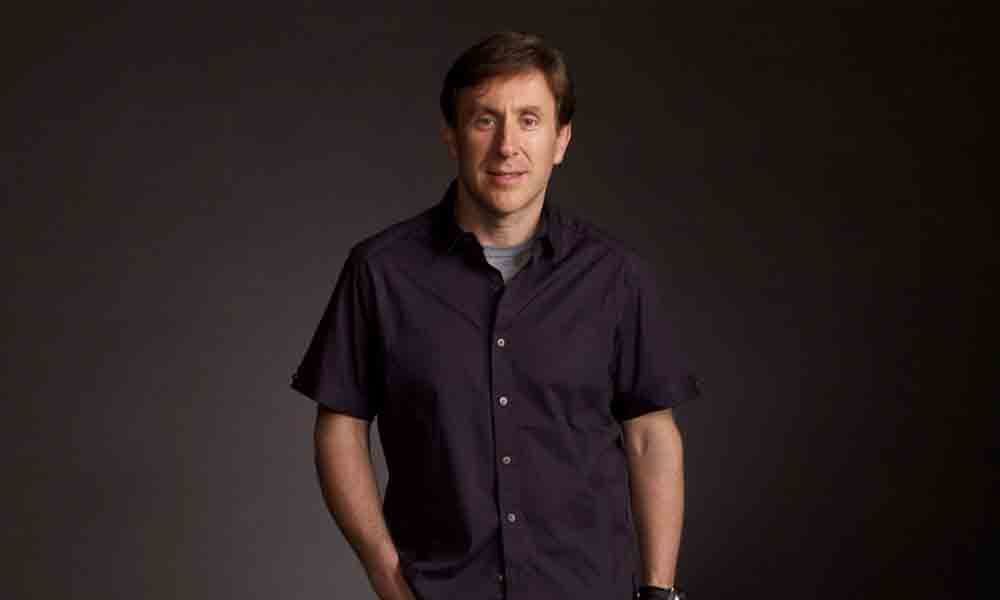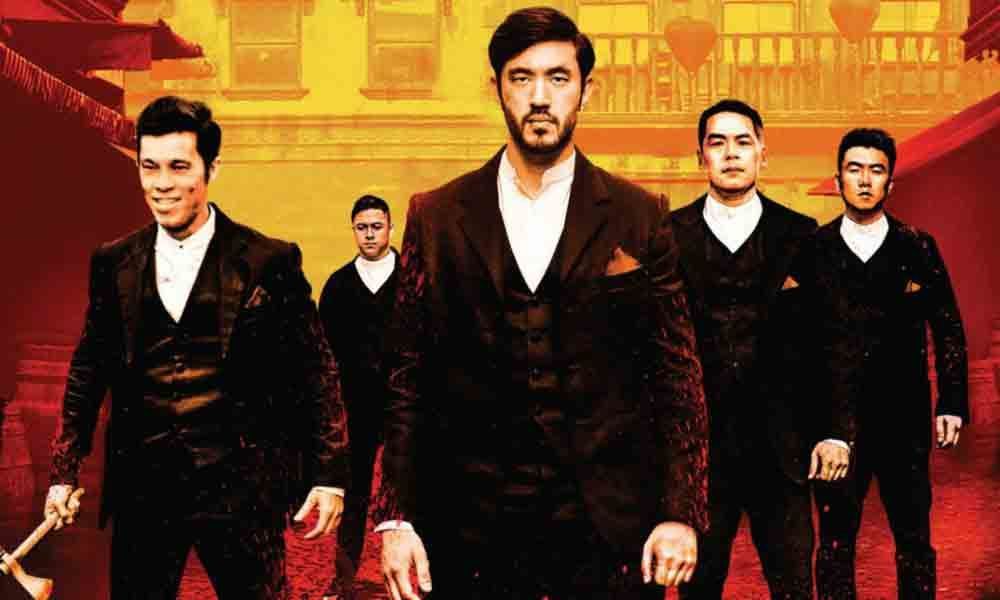Live
- Asha Workers Stage Protest at Jadcherla MLA Camp Office, demanding hike in salary and other employee benefits
- Surprising Health Benefits of Eating Sprouts
- Purandareswari Emphasizes Cultural Education at YN College Diamond Jubilee Celebrations
- Andhra Pradesh Real Estate: Emerging Cities to Invest in 2025
- National Youth Day 2025: Celebrating Youth Empowerment and Swami Vivekananda’s Vision
- Today's Horoscope for January 10, 2025: Unlock the Powerful Daily Insights of Your Zodiac Sign
- Bengal fake passport racket: Role of verification officers under scanner
- SC stays GST show-cause notices to online gaming sector in temporary relief
- Sambhal mosque row: SC stays implementation of notice relating to well
- SS Rajamouli Unveils India’s First Dolby Certified Postproduction Facility for Cinema & Home at Annapurna Studios
Just In
Jonathon Tropper is an Internationally Bestselling author of six novels. He is also the co-creator of the television series 'Banshee'. He's the writer behind some exceptional shows like the Primetime Emmy Nominee 'Vinyl' and 'Kodachrome'. In 'Warrior', Jonathon has taken up the role of creator, executive producer and writer.
Excerpts from an interview
How much does 'Warrior' line up with what Bruce Lee envisioned for this story?
He wrote it in a time when TV was different, but the essence of it was this character, Ah Sahm (Andrew Koji), a martial arts prodigy who comes over to San Francisco's Chinatown looking for his sister, and ends up finding her and getting swept up in the Tong Wars of the late 1800s.
I think Bruce Lee's primary goal was for there to be a heroic lead of a Western show that was Asian, and at the same time to convey the lessons of Kung Fu. Today, thanks to Bruce Lee, Kung Fu has been prevalent for so many years and we don't need to introduce it. So, it's more about these characters and the systemic racism that existed in America at that point - and a fun action show with a great historical backdrop.
What are the main socio-political issues the show deals with?
Bruce Lee knew a lot about the Tong Wars and had a good idea of what was going on in the world - and what it would like to be a Chinese man in America in the 1870s. I then did the research and started seeing that's when they voted in the Chinese Exclusion Act of 1882 (banning the immigration of Chinese labourers), which was the first legislation against a particular nationality immigrating into our country until (the presidency of) Donald Trump.
There are echoes of present-day American politics, especially with the anti-Chinese sentiment among the Irish at the time, who felt they were stealing their jobs. Were those parallels deliberate?
It's weird - we became accidentally relevant, because I wrote the pilot before Trump was president, and then he began tearing our immigration policies to shreds and suddenly what we're writing about is happening again.
You look at our country now and nothing has changed. The country continues to look for cheap labour sources at the expense of their citizenry, and you see it both ways - you have immigrants coming in who need to work, and you have more established Americans who feel that's their work. It's sort of an American problem that wasn't foreseen by our founding fathers, but that there really isn't a clean solution too.
The show also incorporates contemporary touches in its music, costumes and overall look. What was the thinking behind this?
We take some liberties. We're not making a true docu-drama – we set our tone a certain way and we do visuals a certain way, so you know we're having a little bit of fun with the period.
How is this distinct from other action-packed Cinemax dramas such as 'Banshee' and 'Strike Back'?
I was a martial artist for most of my life and a huge Bruce Lee fan. I was raised on every straight-to-video martial-arts movie – everything from Bruce Lee and Chuck Norris to Jean-Claude Van Damme and Steven Seagal.
The idea was to take the fun of that but put it into something that had a much shinier patina, and that told a much bigger story than just an action show. And then to do something period and create a world that had as much to say about the world we live in now as it was a fun action show. It seemed like all the ingredients were there to do something elevated.
What is your own martial-arts background and how did it help you with the fight scenes?
I did Kung Fu from probably sixth grade till I was about 27 or 28 years old. I'm kind of rusty now - I haven't done it for a while - but, for the scripts, I spend a lot of time actually writing the fights, blow for blow, and a lot of time with the fight coordinators. We sneak in a lot of homages to Bruce Lee, so I make sure that in certain fights, we steal certain moves out of Bruce Lee movies.
What were you going for in terms of the fighting style?
We want it to be that way. We didn't want to go in the direction of, let's say, 'Crouching Tiger, Hidden Dragon' – we didn't want to beautify it, we wanted it to be very consequential. We wanted you to feel like you were watching street fights where people are getting hurt, where punches do real damage. Sometimes, in the more balletic forms of this - and I'm not knocking them - there are no real stakes because everyone trades a million punches and blocks and nobody's worse for wear. In our show, we wanted bones to break and knuckles to crack and people to bleed. And we keep the camera as messy as the fight, so it feels more like a street fight than a beautifully shot martial arts sequence.
'Warrior' airs on Star World from Monday to Friday at 10 pm.

© 2025 Hyderabad Media House Limited/The Hans India. All rights reserved. Powered by hocalwire.com









